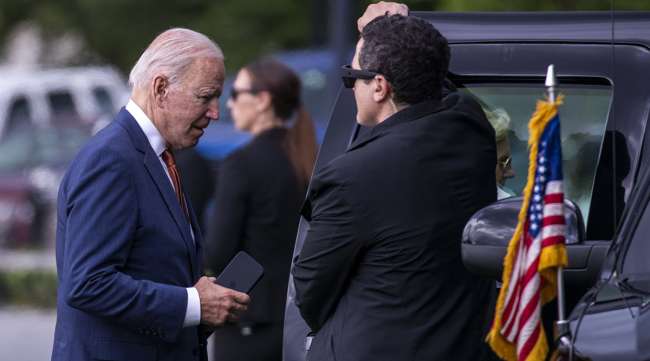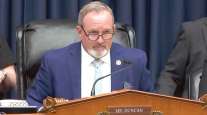Biden Floats 15% Minimum Corporate Tax to Fund Infrastructure

[Stay on top of transportation news: Get TTNews in your inbox.]
President Joe Biden has pitched to Republicans the idea of a 15% minimum tax on U.S. corporations, along with strengthened IRS enforcement efforts, as a way to fund a bipartisan infrastructure package.
The proposal sets aside the Biden administration’s proposal to raise the headline corporate income rate to 28% from 21% — a nonstarter for Republican lawmakers — though that could be pursued elsewhere. White House Press Secretary Jen Psaki confirmed the offer during a briefing June 3.
Under the pitch to Republicans, companies that have lots of tax credits and deductions would be required to pay at least 15%. The plan also would increase tax revenues by conducting more audits of rich taxpayers.
Those two funding measures already were included in Biden’s tax plans. The White House sees the offer as raising money without increasing tax rates or rolling back President Donald Trump’s 2017 tax cuts, something that Republicans have said is a red line in the negotiations. The Washington Post reported earlier on the proposal as part of an offer for $1 trillion in spending.
Biden met June 2 with Sen. Shelley Moore Capito, the West Virginia Republican leading the infrastructure talks for the GOP, in the latest attempt at a compromise. The discussion did not yield a deal on how much to spend or how to pay for it, but the two talked by phone on June 4. Capito's office released a statement with few details except to say the two “agreed to connect again on Monday.”
Biden had earlier made a $1.7 trillion infrastructure proposal to Republicans. Taking a 28% corporate tax rate increase off the table for these discussions would eliminate what the Treasury Department estimates is $857.8 billion in revenue over a decade.
The IRS enforcement plan, projected to raise $778.8 billion, combined with the $148.3 billion from the 15% minimum tax, would collectively offset about $927.1 billion in infrastructure spending, based on Treasury estimates released last week.
Democrats still could pursue other tax plans in a partisan reconciliation bill later this year.
Psaki stressed that the 15% profits tax was included in Biden’s American Jobs Plan and proposed budget, and said the president was “absolutely not” abandoning efforts to raise the corporate rate to 28%. She characterized the latest offer as an attempt to find a path forward on this specific negotiation with Republicans.
“This is a way for him to identify pieces he’s long been a proponent of,” Psaki said. “This should be completely acceptable” to Republicans who want to leave the 2017 tax law untouched, she said.
Biden also is open to reallocating some $75 billion of funds left over from coronavirus-relief bills passed in 2020, Psaki said.
But progressive Democrats expressed dismay at reports the negotiations could be headed toward what they an consider unacceptable compromise.
“If what we’ve read is true, I would have a very difficult time voting yes on this bill. Two trillion dollars was already the compromise. President Biden can’t expect us to vote for an infrastructure deal dictated by the Republican Party,” Jamaal Bowman of New York, a freshman congressman, said in a statement.
The 15% minimum tax addresses situations in which major tech companies, such as Amazon.com Inc., Netflix Inc. and Zoom Video Communications Inc., largely have been able to avoid paying federal income taxes in some years despite turning a profit because they used legal maneuvers, including write-offs for business expenses, to whittle down their tax bill.
Want more news? Listen to today's daily briefing below or go here for more info:




